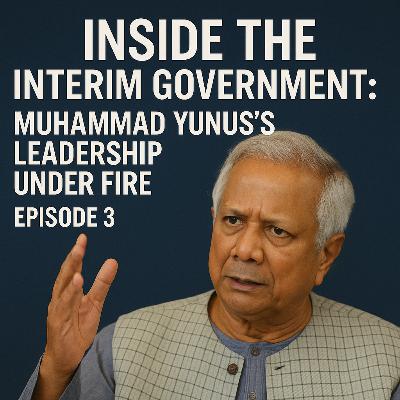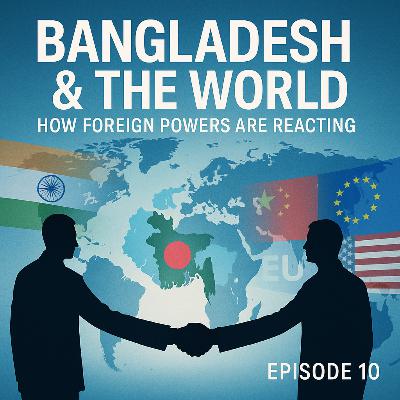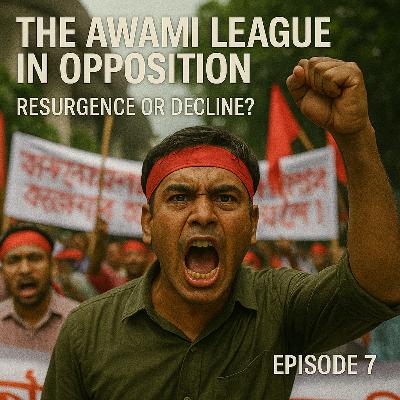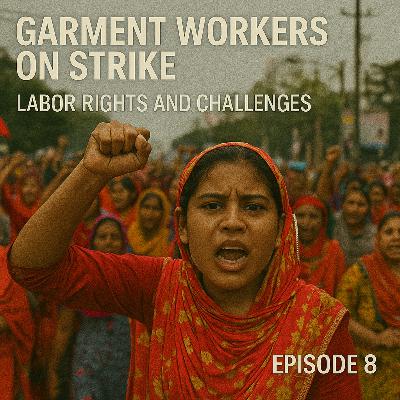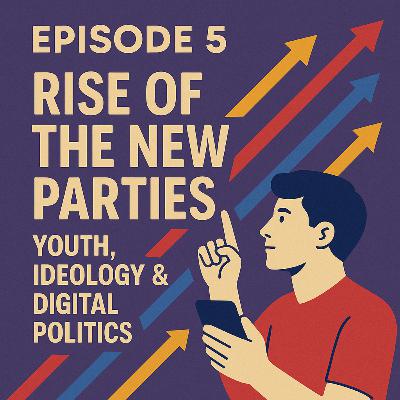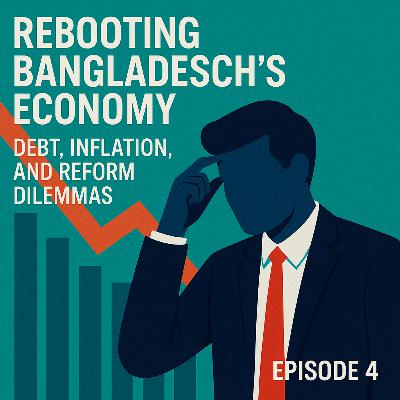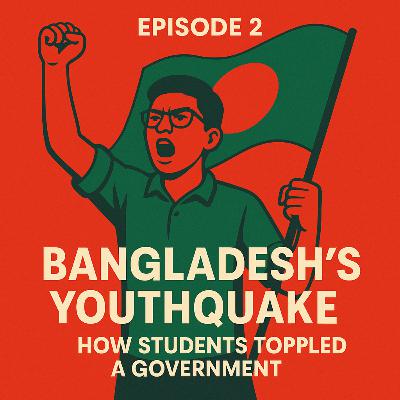🎧 Episode 3: Inside the Interim Government: Muhammad Yunus’s Leadership Under Fire
Description
This podcast episode delves into the tumultuous political transition in Bangladesh following the July 2024 mass uprising, which led to the resignation and exile of Prime Minister Sheikh Hasina after 15 years of increasingly authoritarian rule. Triggered by student protests against a job quota system, the movement escalated due to widespread public frustration over human rights abuses, corruption, and economic hardship. The government's violent crackdown, resulting in hundreds of deaths, failed to suppress the protests and ultimately led to Hasina's downfall.
Amidst the power vacuum, Nobel Peace Prize laureate Muhammad Yunus, nominated by student leaders and accepted by key stakeholders including the military (but excluding the Awami League), was sworn in as Chief Adviser of an interim government on August 8, 2024. Operating under the "doctrine of necessity" affirmed by the Supreme Court, this extra-constitutional administration's legitimacy rested heavily on public support and its ability to deliver on its mandate.
The episode explores the composition and actions of the Advisory Council, a diverse group of technocrats, activists, student leaders, and veterans. Early priorities included symbolic gestures, outreach, and establishing commissions for key reforms. Economic stabilization efforts focused on tackling high inflation, dwindling reserves, and currency depreciation through measures like adjusting exchange rates, setting commodity prices, and restructuring the banking sector, although results were mixed, with inflation remaining stubbornly high.
Institutional overhaul via six (later expanded) reform commissions formed the core of the agenda, aiming to depoliticize state bodies like the judiciary, police, and administration. However, the commission-based approach risked being slow and bureaucratic, and concerns arose about inclusivity, particularly regarding ethnic and religious minorities.
The podcast further discusses the interim government's navigation of complex international relations, especially with India and China. Tensions arose with India concerning minority security post-transition, while managing China's significant investments presented another challenge.
Significant controversies plagued the administration, testing its authority. These included the release of prisoners like Mufti Rahmani, an extremist leader, sparking security concerns and straining ties with India; the failure to adequately protect minority communities, particularly Hindus, from post-uprising violence, leading to criticism and protests; and the 'Adibashi' controversy, where government actions perceived as yielding to nationalist pressure against indigenous identity recognition led to violent clashes and condemnation. Emerging concerns about media freedom, potential corruption within the interim government, and politically motivated actions against the former ruling party also surfaced, threatening the administration's credibility.
Finally, the episode analyzes the shifting political landscape, including the interim government's relationship with the established parties (BNP and the marginalized Awami League), the evolving role of the student movement from kingmakers to political actors, and the transition of public sentiment from initial euphoria to increasing scrutiny and impatience due to persistent challenges and controversies. The podcast concludes by assessing the interim government's initial achievements against its immense challenges, highlighting the uncertain prospects for achieving lasting democratic reform in Bangladesh's volatile environment.

